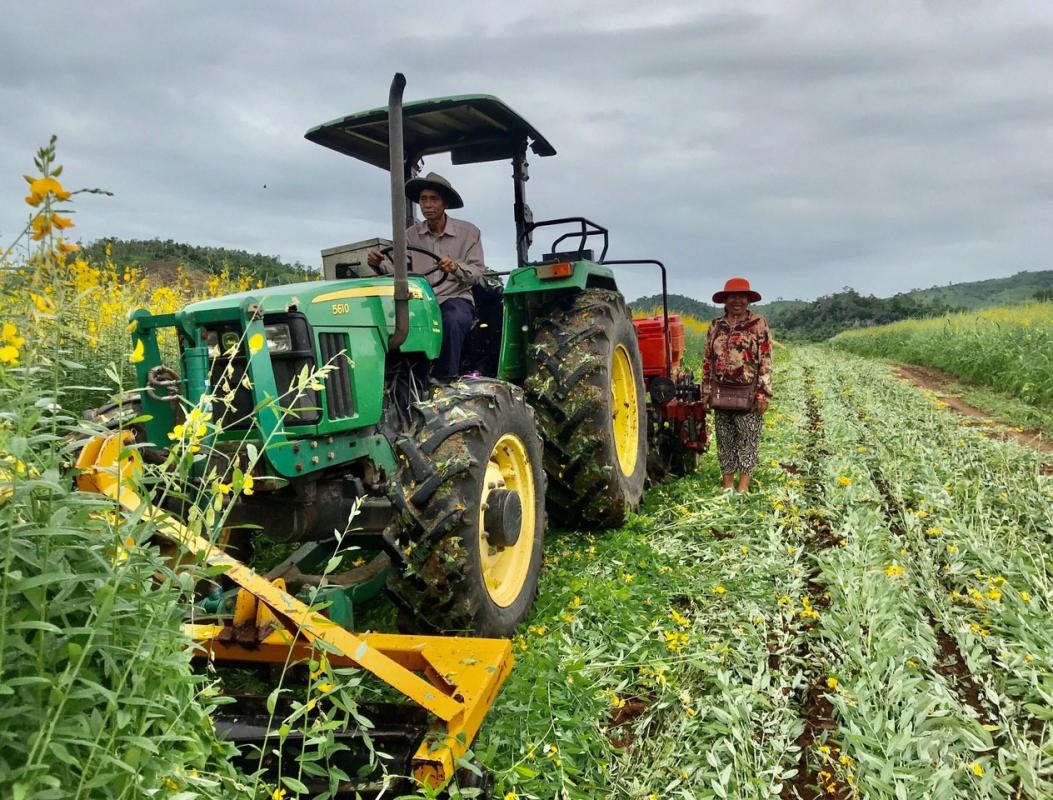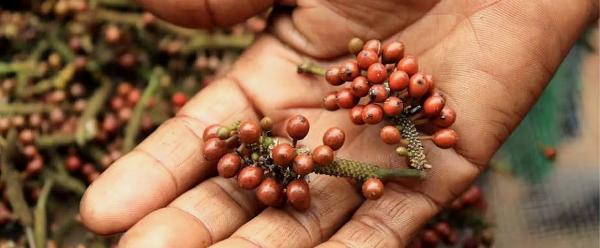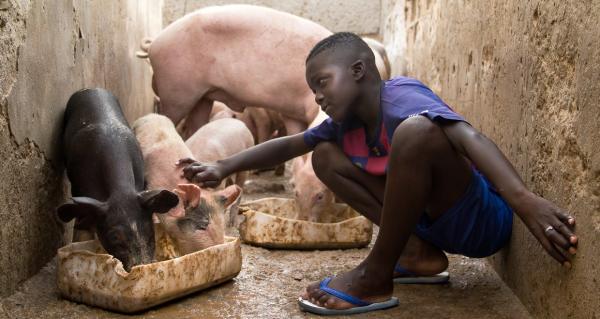Science at work 4 March 2024
- Home
- CIRAD news
- News
- ASSET: sustainable agrifood systems in Southeast Asia
ASSET: towards more sustainable agrifood systems in Southeast Asia

Conservation agriculture in Cambodia: sowing maize over a Crotalaria juncea (Indian hemp) cover © V. Sar
“There will be many exchanges between countries concerning agricultural practices and markets. This will enable Laos to step back and look at the challenges of development and the shape the country wants it to take ”, said Thatheva Saphangthong, Deputy Director of the Laos Department of Agricultural Land Management, (DALaM), a few days before the official launch of the project. From 10 to 12 November, a series of workshops kicked off the ASSET project (Agroecology and Safe Food System Transitions).
Financed by the Agence Française de Développement (AFD - French Development Agency) and the European Commission, with a budget of 12 million euros, and orchestrated by GRET, with scientific coordination by CIRAD, this far-reaching five-year programme will involve 27 partners in Cambodia, Laos, Myanmar and Vietnam. Its goal is to exploit the potential of agroecology in order to support the transition of agrifood systems in Southeast Asia.
A diverse region with common challenges
Today in the region, agricultural systems are increasingly organized around intensive, specialized monoculture s, adopting the principles of the green revolution: high doses of fertilizers, improved varieties and GMOs for some crops, insecticides, artificial insemination, etc. “This evolution limits the diversity of production systems and has negative environmental impacts (aquifer pollution, soil degradation, biodiversity loss) ”, says Mélanie Blanchard, a researcher at CIRAD specializing in livestock production systems, and one of the project’s coordinators. “The possibilities for interaction between components of the agricultural system are reduced, limiting their resilience to attacks ”. In Laos, for example, there is still a very high level of agrobiodiversity and of virtuous traditional agroecological techniques (agroforestry, rice-fish farming systems, intercropping). However, “the recent development of large rubber and eucalyptus concessions and mines is putting farmers in an extreme situation and threatening their livelihoods ”, says Thatheva Saphangthong.
To address these challenges, crop-livestock integration, conservation agriculture (no-till or cover crop), agroecological crop protection and agroforestry are just some of the options available. Although they already exist to some extent in the four countries covered by the project, they need to be reinvented and supported in order to initiate a genuine agroecological transition . “So far, several small-scale pilot projects have been conducted in Vietnam. But we lack a global strategy and more comprehensive policies to promote and implement this transition ”, says Dao The Anh, Vice-President of the Vietnam Academy of Agricultural Sciences (VAAS), a partner of the project. “When farmers supply agroecological products, they need a market. This therefore implies not only providing techniques, but also taking action at every stage of the value chain, right up to consumer recognition of the nutritional value of these products ”.
From the field to supranational political arenas
The project is thus based on an integrated approach , addressing three spheres of the agroecological transition in agrifood systems. First, “technical-economic ”, to develop and promote agricultural and marketing practices that are appropriate and effective. Next, “political ”, to raise awareness of the challenges and opportunities of integrating agroecological approaches into public policies. Finally, a “societal ” sphere, to ensure an increase in citizen and consumer demand for more sustainable and safer food products. “Ultimately, there is a need for knowledge about the performances of agroecology and for recognition of its benefits by consumers, support services and authorities ”, says Estelle Bienabe, a researcher specializing in food markets and systems, and scientific coordinator of the project.
In every country, an intervention territory is selected. Next, all actors in that territory use theory of change to identify the innovations to be supported: crop associations between cereals and legumes, cultivation of fodder crops under trees, cover crops under maize, use of natural enemies to limit crop treatments, participatory guarantee systems, etc. This is followed by support at the level of fields, farms and also service providers, downstream operators, local authorities, etc. This work is carried out by agronomists and researchers in the biological and social sciences.
Changes in production are thus integrated with downstream changes (marketing, management of traceability for greater consumer trust) and the policy environment.
Based on fieldwork, “analyses yield some broad insights: which conditions are conducive to the implementation of agroecological innovations? ”, explains Estelle Bienabe. Using existing data management tools, this information collected at the local level is checked against national indicators and statistics.
A shared roadmap in support of agroecology
This data management will consolidate ALiSEA – a multi-stakeholder network bringing together NGOs, the private sector, research, and farmers’ organizations around agroecology – and its communication and sharing tools, in order to transform them into a genuine knowledge platform. “This platform will be very useful to us for pooling and sharing experience and success stories ”, says Dao The Anh. In addition to its capitalization role, this knowledge will also inform the policy dialogue built at different levels. A dialogue which, once taken to the ASEAN regional level, in particular via the LICA initiative , should lead to the development of a roadmap in support of agroecology .
At the heart of this action research project, the partners of three platforms in partnership of which CIRAD is a member ( MALICA , ASEA and GREASE ) will work hand-in-hand with the actors in the four countries, for a more sustainable agriculture and environment. “We now have hindsight about the risks linked to agricultural intensification. Do we still want to rush into harmful systems, or to slow down in order to make the right choices? There is no uniform approach to agricultural development, and therein lies the importance of this intersectoral project ”, concludes Thatheva Saphangthong.
The DeSIRA initiative
The DeSIRA initiative (Development Smart Innovation through Research in Agriculture) was launched during the One Planet Summit in Paris in December 2017. It is headed by the European Commission Directorate General for International Cooperation and Development (DG DEVCO) and is articulated with the Bill & Melinda Gates Foundation. It is aimed at boosting innovation in agriculture and the transformation of food systems in partner countries to make them more resilient to the effects of climate change. It seeks to strengthen research partnerships (Europe and global South), to promote research in partnership with development stakeholders, and to focus on impact-oriented research.
This publication was produced with the financial support of AFD and the European Union. The content of the publication is the sole responsibility of CIRAD and can in no way be taken to reflect the views of its financial partners.


























